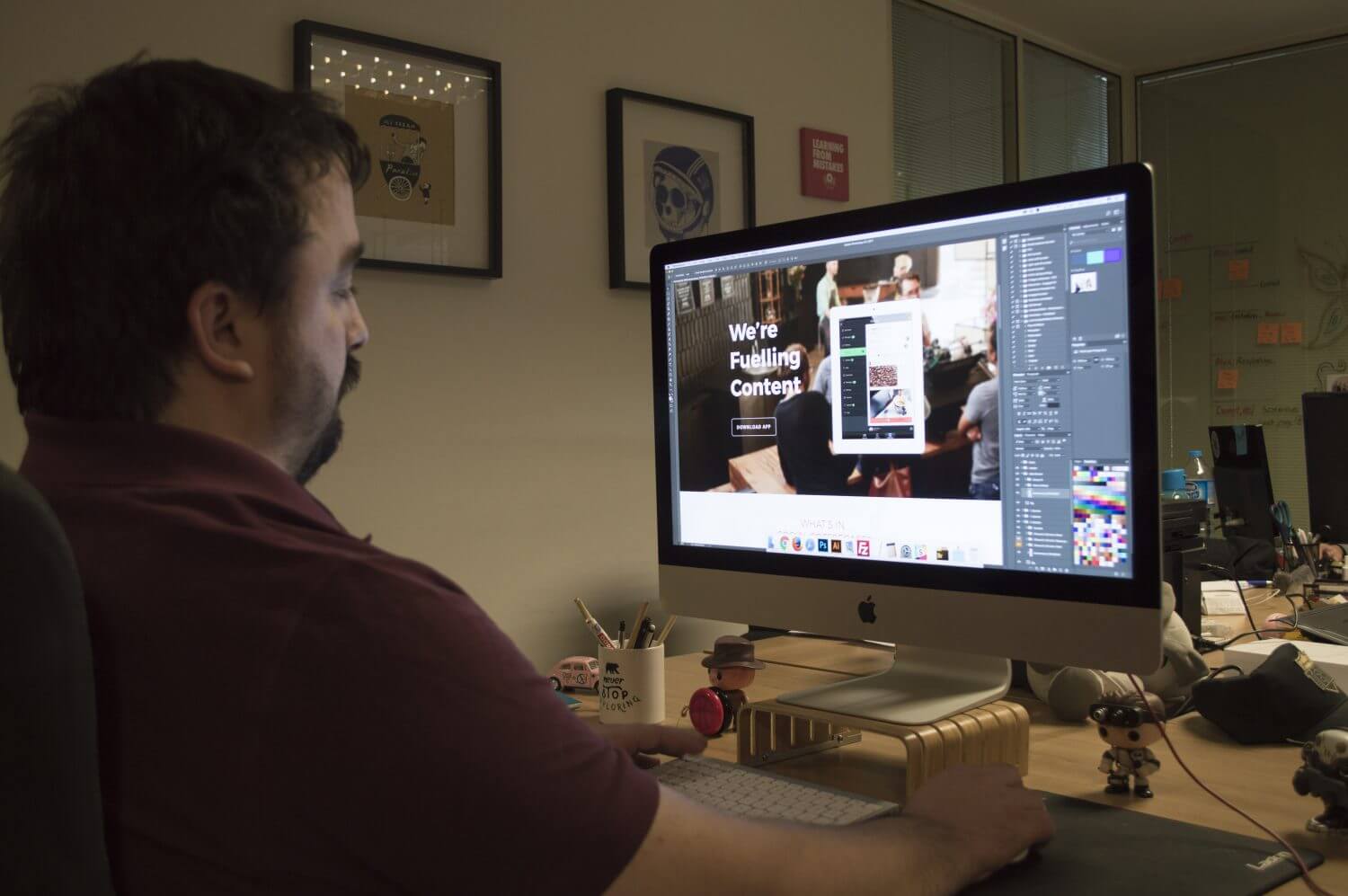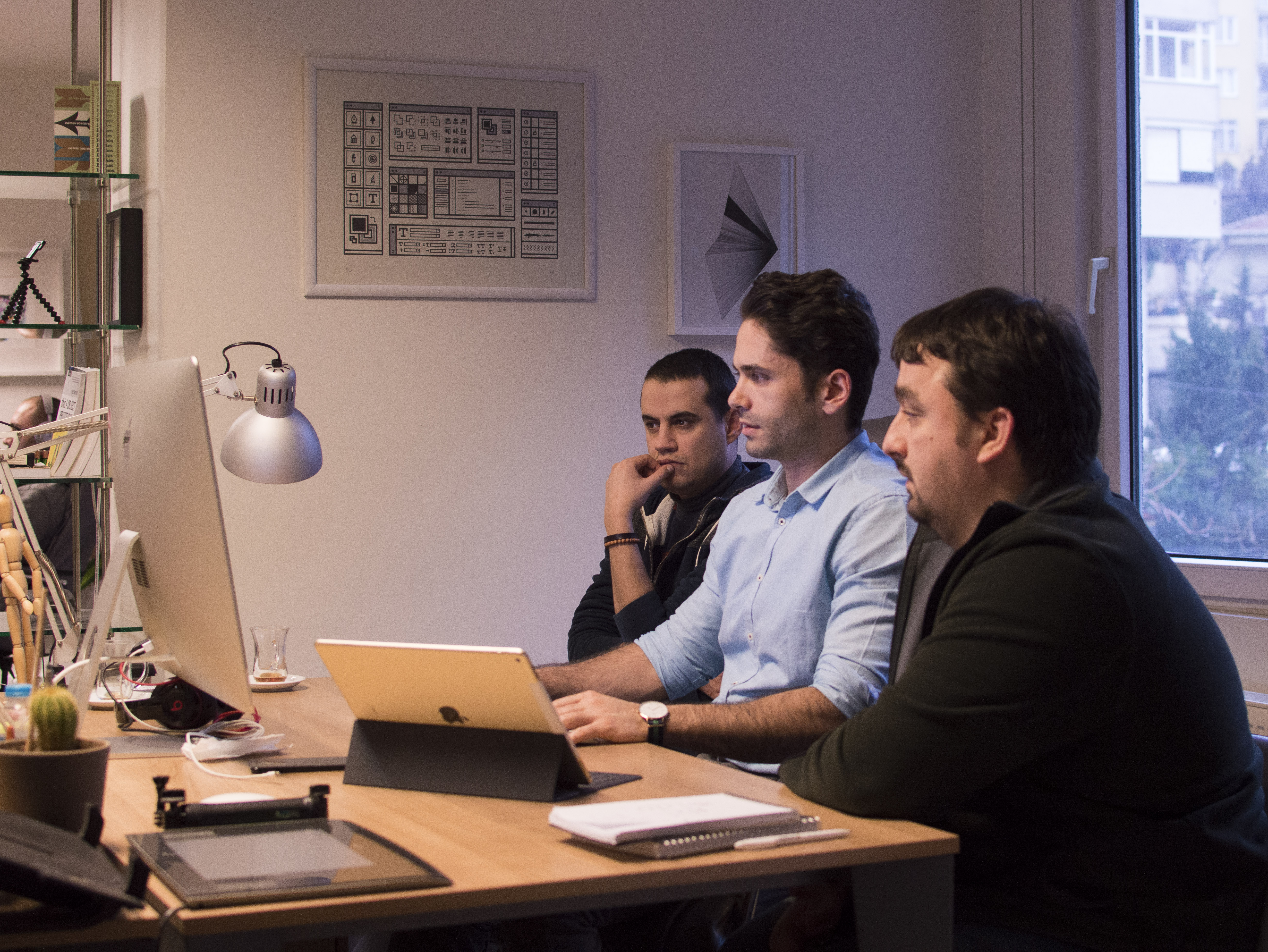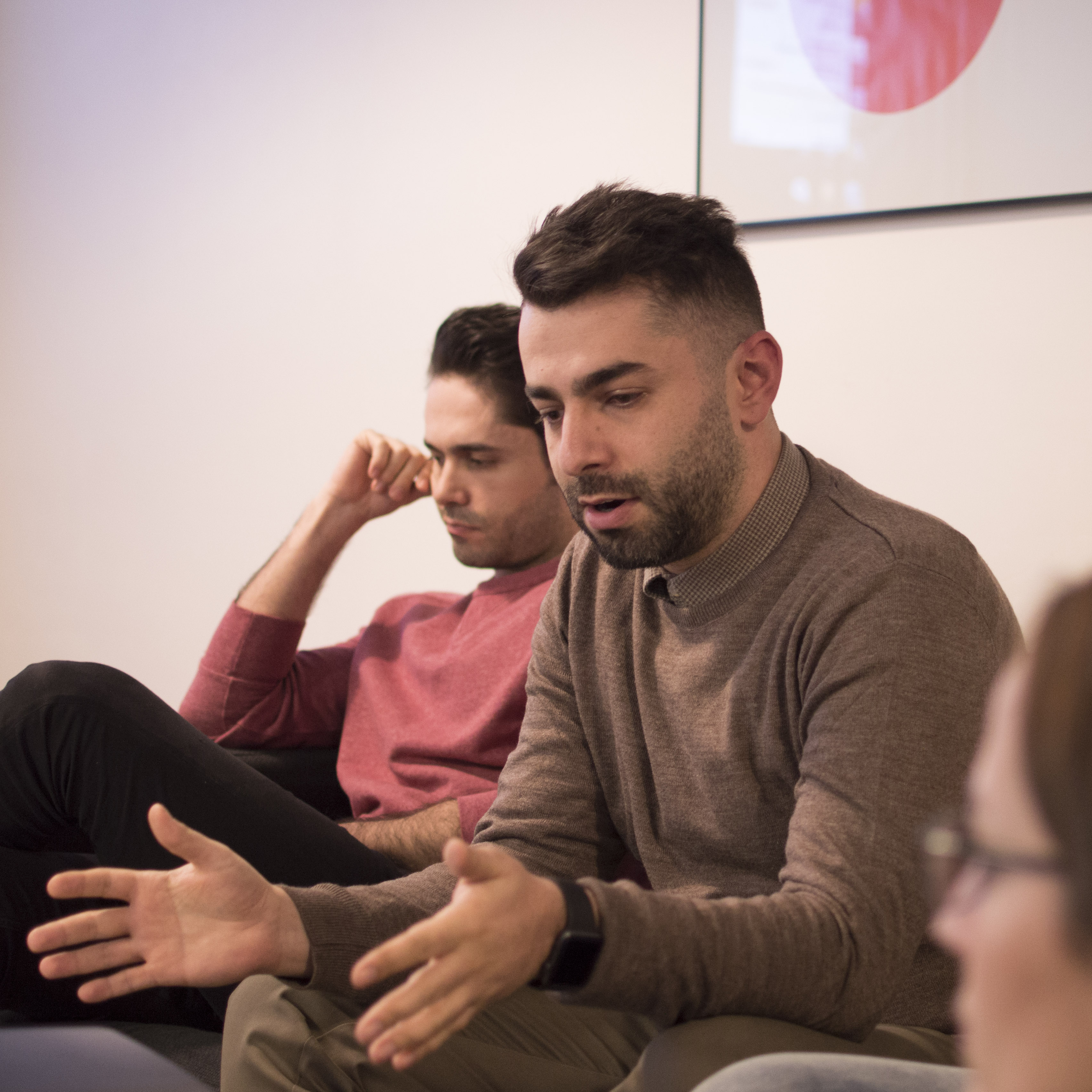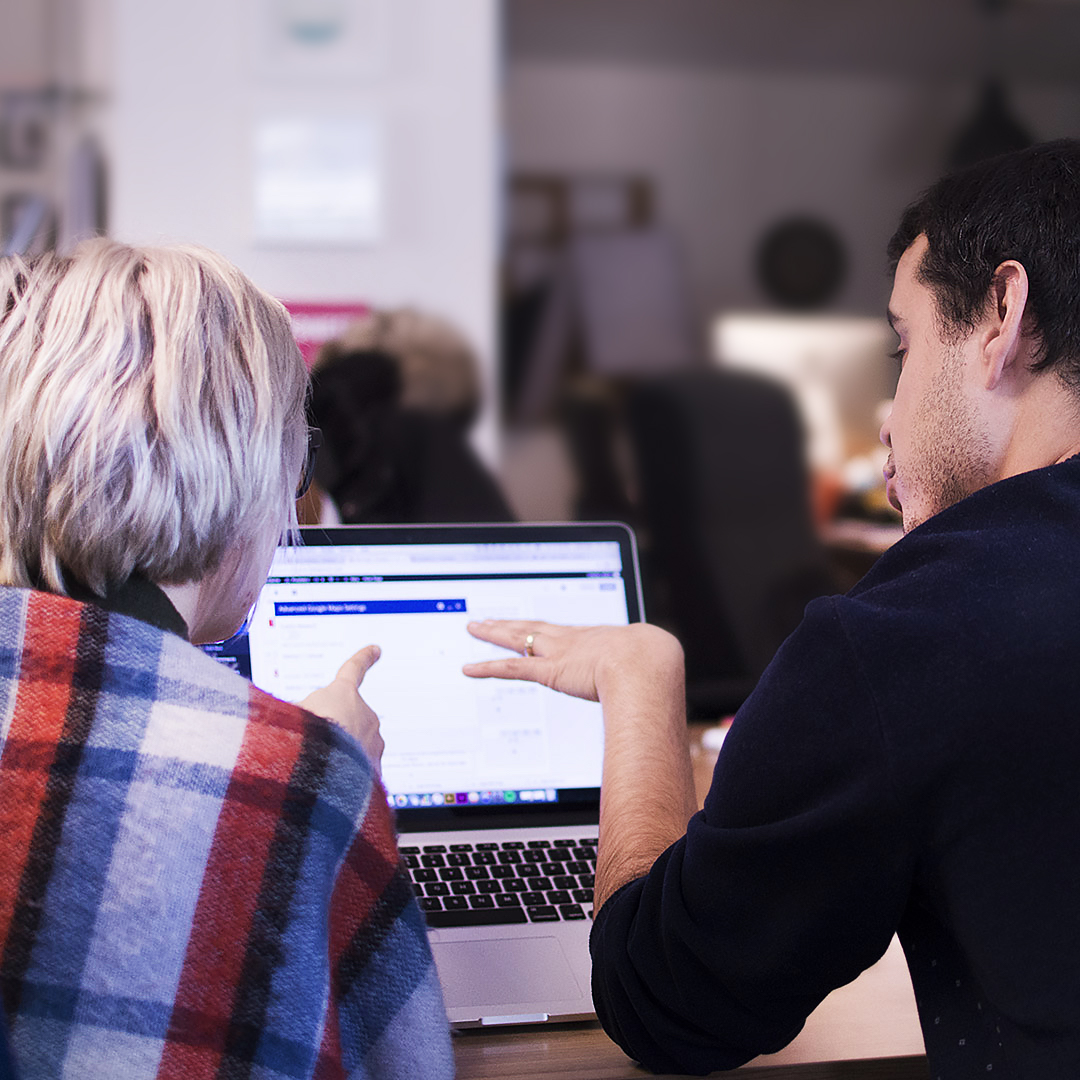So consider this as a letter to our younger, less experienced selves. In this article we’ve asked all of the web designers at Artbees (Rouzbeh, Max, Arif & Cuneyt) advice for aspiring web designers – what they wish they knew when they were younger and what advice they’d want to give other aspiring web designers. Here’s what they had to share:
For students who aspire to work in design, what would you recommend they study?
Rouz: Feed your eyes with great artwork. Expose yourself to different kinds of design frequently so that it can set higher standards in your taste. By digging into the greatest artworks recommended by critics, you will eventually find your own taste. I also think that as a designer, you shouldn’t just be focused on your design field.
To be a multifaceted and smart designer you should have a good perception of all art; even art not directly related to your field of study or expertise.
Cuneyt: Sorry – no shortcuts here. Constantly practicing is key. Keep practicing by helping relatives, friends or colleagues on different design projects. This will help you gain experience and if you have a family like mine, very blunt feedback. If you don’t feel comfortable doing this, start creating your own projects. In addition to this, constantly put efforts toward reading and researching! There are lots of useful articles and blogs on Youtube and current designer sites. Don’t just restrict yourself to web design though; also check out photography, advertising and print. Researching in different branches will help with coming up with new ideas.
How do you know when your design is ready to hit the market & critics? What criteria need to be met to know that you’ve got a usable design?
Max: I, for one, think my work is ready to be published 90% of times. Though at this point it has to have passed a very strict set of self-imposed standards and requirements. If it’s a web design project, I check the page first in its entirety and then detail by detail. To be honest I’m more of a detail-oriented person (maybe it comes from my icon design origin). I love working on details and find it rewarding when they turn out to be what I want at the end! If it’s an icon design project, I check the whole work in 3000% zoom to check every single pixel to perfection.
Cuneyt: Efficient marketing of one’s work is very important. We all know just finishing a design is never enough as long as you can not market it well to the receiving end. This can only be done with good communication and confidence in one’s work and self. Knowing extra languages would also support the level of communication and trust between you and your possible employers. I recommend creating a portfolio. A good portfolio always helps to be one step ahead of the curve when searching for a new job.
How did you balance education and work outside of studying?
Max: Like many designers end up doing, I continued my higher education up until my Master’s Degree. Unfortunately I had to drop out of my PhD program once our work at Artbees really took off; I just couldn’t balance the workload anymore without compromising the quality. Unlike the common interest–and in some way we can call it the merit–in the startup community and culture to abandon everything for work and being a university dropout, I never regretted keep my education going as well my years of hard work in twentieth.
I learned a lot in academics I’m sure I would never have learned outside of school. To answer the question there is no way you can achieve a perfect balance if you want to make big strides in your work and excel academically. You can have it all, just not all at the same time. Trying to exert equal parts of your energy and creativity to school and work can result in average or compromised work. Ask yourself which path you gravitate most towards and follow that course.
What should students and new designers focus on outside of their course work to advance in their careers?
Rouz: Watch a good movie, read a book, go to a museum, participate in some art workshops and travel to learn about other cultures and people and their art! Create a habit of discovery and discomfort that allows you to bring back ideas to your team.
What one thing do you wish you knew before starting your career?
Rouz: If you really are looking for a change, the hardest part can be just starting to put it into action. Oftentimes we consume ourselves with all of the small details and logistics, ‘what if’ thoughts and self-doubt. Just jump in, start creating and know that sometimes you will fail and that’s all part of the process.
Max: I wish my coding skills were as good as my design skills during my freshman year. I’m not talking about regular HTML and CSS, but rather a vast knowledge of Javascript and even one general usage language like Python. I never put as much time on coding as I did on design and design softwares. Becoming a product designer and entrepreneur would have definitely been easier with a solid coding knowledge.
What job search advice do you have for recent graduates?
Rouz: Avoid the big agencies. Your individual creativity and motivation will be diluted into the mass of egos in that type of hierarchical work environment. Try to find a small company which can give you maximum freedom to actually do something other than cleaning up an experienced designer’s files. I’m not against doing some footwork as a fresh graduate, but having direct ownership and thus accountability for your work will yield in a much higher level of learning and experience.
Cuneyt: Besides having a well designed portfolio, you should also have a well-written and clear CV and recommendation letters from teachers or internships. If you have no work experience, I’d suggest applying for an internship. Throughout your career, as tedious as it can be, I’d recommend you to keep your professional online profiles updated, attend events and volunteer for projects if possible. These are great networking opportunities and you’ll never forget to mention a project or role you were involved in on your portfolio. Rejection is inevitable but don’t get discouraged so easily. Engage with prospective clients and employers and be assertive in getting feedback as to why the application was rejected; this will give you direct advice to improve your approach.
What should new designers consider when deciding between working for an agency and freelancing?
Rouz: In my opinion, starting your professional career as a freelancer generally isn’t a good idea though it can work for those few, rare natural born designers. Thing is—working in an agency can open up so much learning opportunities for you. In socializing and collaborating with your colleagues, you’ll get more exposure to different specialties and skills. You’ll learn invaluable lessons on how to manage a company, how to do marketing, how to talk to a colleague or how to pitch a client and I find these skills are harder to learn in isolation.
How can students and young designers make themselves more valuable to potential employers?
Rouz: Practice your pitch! Beyond just an organized and flawless portfolio, learning how to talk about what you specialize in and what you’re looking to do in a charismatic and persuasive way is essential. Be authentic in your portfolio and be ready to explain in detail every project you’ve worked on; think about what went wrong, how you were pivotal in finding solutions and achieving outcomes! No need to waste your time on awards and such; they want to hire you, not your awards (or your ego for that matter).
Cuneyt: Self-confidence, self-marketing and good communication skills are all really important when you first meet potential employers or clients. I’ve found that it’s important that I ask direct questions to better understand exactly what the client wants and when they want it. It’s even more important to give realistic expectations for what you can do and by when you can do it! Promising conversions to quadruple in one quarter is an admirable but lofty promise to make and can mean termination if you don’t keep it.
When working for a client, what advice would you give about balancing your own creative ideas and what the client wants? What if what the client wants goes against what you think is best?
Rouz: Yeah, this is a tough one and unfortunately there’s no one cure for it. If you have a client who has ugly taste and wants to inflict that on your designs there are two approaches you can take:
- FYM (F**k your money)
- Try to convince the client how your design can benefit them to make some compromises.
Okay—let’s be honest; only reputable and wealthy designers can afford the FYM approach.
So what remains is your communication skills. Most clients already have something in their mind when entering your office. It’s up to you to be able to direct their vision in a direction that aligns with results-oriented principles of design and actually ends up working in their best interest. When they see the reasoning and concept behind your ideas, they’ll be more likely to incorporate those ideas into their vision.
When just starting off, what aspects of running a business should new designers focus on?
Rouz: Don’t be afraid of reaching out to clients with your own proposal. As long as you make a point they will listen to you. Regardless of whether they bite or not, you’ve gotten their attention and now they know your name and are more likely to think of you for upcoming projects or referrals. How to build a network? Stay in touch with fellow designers, teachers and most importantly business owners of any kind. Try to get as much face to face interaction as you can with prospective clients and make sure they know exactly what you do.
Max: Instead of focusing on making money, focus on contributing to your community and how to best serve people. Even providing free services when you first start off can really attract many customers to you initially; by then you’ll prove your worth and collaboration style (which is hopefully good) and those will turn into future leads. If you’re a developer share your codes in Github for free. If you’re a designer you can design downloadable assets in DeviantArt, Dribbble and Behance. If you don’t want to do any of these, write useful content about what you do and share it for free on your blog. That’s how you can get off the ground. That’s how we at Artbees did it!
What networking tips do you have for young designers?
Cuneyt: Dare I say it to the introverts but you have to open yourself up to the world! Don’t be afraid of approaching professional designers. Social networks make it insanely easy to expand your network these days. Try to participate in workshops and meetups. No these events aren’t to sharpen your technical skills but rather to help you learn how to work collaboratively and earn some new friends!








No comment yet, add your voice below!